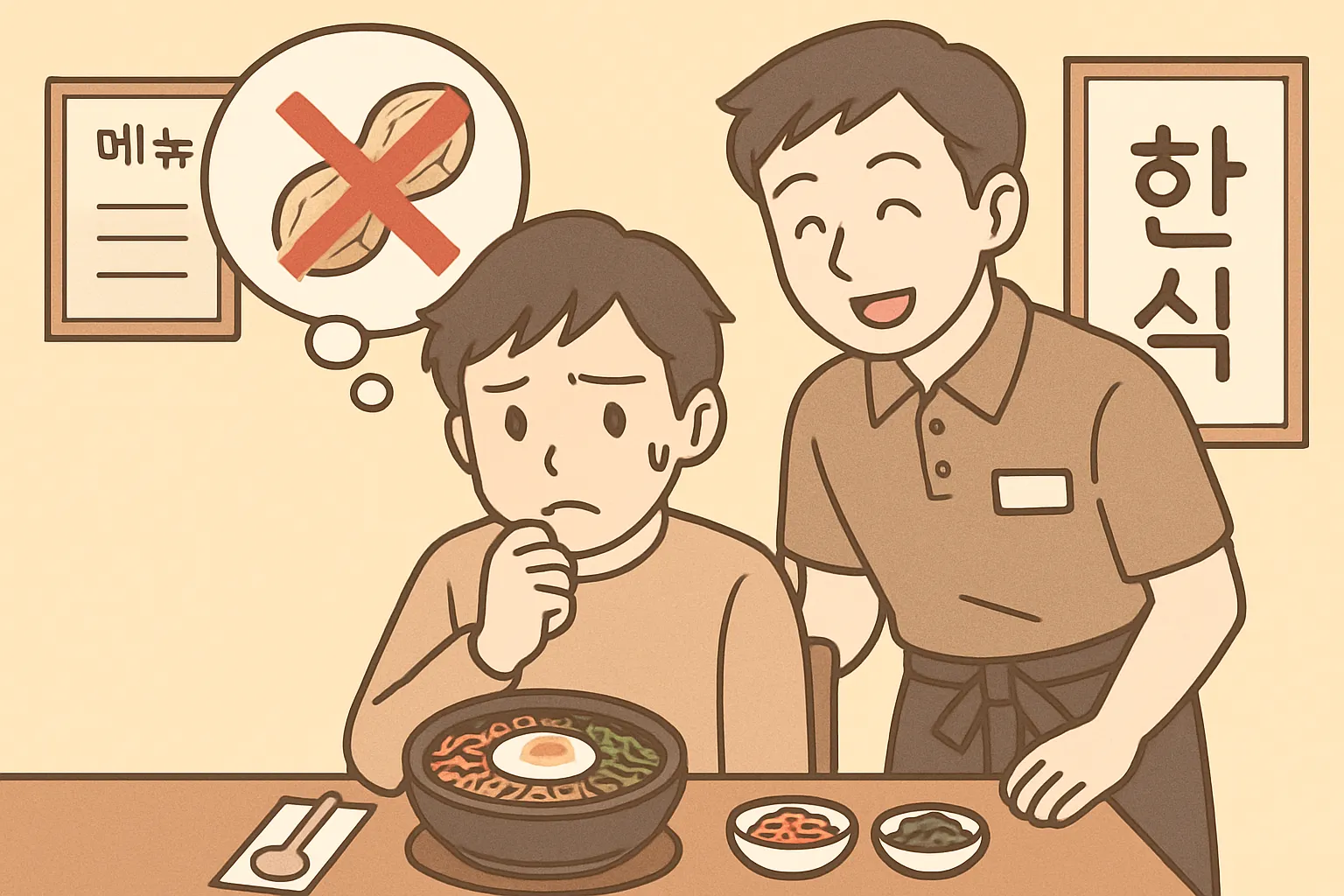Introduction
안녕하세요! Hello! This is [Daily Hangul], here to upgrade your Korean skills to a professional level!
Today, we are diving into a very sophisticated and essential topic: Emotional Intelligence and Empathy. Specifically, we will learn how to explain your feelings in a conflict situation without blaming the other person.
In Korea, the MBTI (Myers-Briggs Type Indicator) craze is still going strong. A common topic of conversation is the conflict between “T” types (Thinkers) who focus on facts and “F” types (Feelers) who focus on empathy. Have you ever felt hurt by a colleague’s cold feedback but didn’t know how to express it without starting a fight? Or perhaps you wanted to give feedback without sounding like you were attacking someone?
Mastering today’s expressions will help you navigate these delicate situations like a true Korean native, using what is often called the “I-Message” (나 전달법) technique. Let’s turn awkward conflicts into constructive conversations!
Key Expressions: Speaking with Emotional Intelligence
Here are 3 advanced expressions to help you focus on your reaction rather than their fault.
1. ~는 점이 다소 아쉽습니다
- Pronunciation: [~neun jeomi daso aswipseumnida]
- English Meaning: I feel a bit regretful/disappointed about the fact that…
- Detailed Explanation:
- Directly saying “I am disappointed” (실망했어요) can sound too strong or accusatory in a professional setting.
- ‘아쉽다’ literally means “to lack something” or “to be a pity,” but it is commonly used to express soft disappointment. Adding ‘다소’ (somewhat/a bit) and ‘~는 점’ (the point/fact that…) makes it objective and polite. It shifts the focus to the situation, not the person.
2. 제 입장에서는 좀 당황스러웠어요
- Pronunciation: [Je ipjang-eseoneun jom danghwang-seu-reowo-sseoyo]
- English Meaning: From my perspective, I was a bit flustered/perplexed.
- Detailed Explanation:
- Instead of saying “You surprised me” or “You were rude,” use ‘제 입장에서는’ (from my position/standpoint). This clarifies that this is just your subjective feeling, not an absolute fact.
- ‘당황스럽다’ is a magic word in Korean conflicts. It describes being flustered or not knowing what to do because of an unexpected situation. It’s a polite way to say, “I was shocked/hurt by what happened.”
3. 굳이 그렇게 말씀하지 않으셔도…
- Pronunciation: [Guji geureoke malsseumhaji aneushyeodo…]
- English Meaning: You didn’t necessarily have to say it like that… (Implies: It hurt my feelings).
- Detailed Explanation:
- This is a defensive but soft way to set a boundary. ‘굳이’ means “obstinately” or “necessarily.”
- You use this when someone is being too harsh or critical (often called “Fact Violence”). It gently suggests that their delivery was unnecessary.
💡 Pronunciation Tip: Palatalization (구개음화)
Let’s look closely at the word ‘굳이’ from expression #3.
- Written: 굳이 (gud-i)
- Actual Pronunciation: [구지] (gu-ji)
Why?
This is due to a Korean sound rule called Palatalization (구개음화).
When a syllable ending in ‘ㄷ’ (d) or ‘ㅌ’ (t) meets the vowel ‘이’ (i), the sound changes to make it easier to pronounce.
- ‘ㄷ’ + ‘이’ becomes ‘지’ [ji] (Like ‘J’ in Jeep)
- ‘ㅌ’ + ‘이’ becomes ‘치’ [chi] (Like ‘Ch’ in Cheese)
Examples:
1. 굳이 (Necessarily): Not [gudi] → [Guji]
2. 같이 (Together): Not [gati] → [Gachi]
3. 해돋이 (Sunrise): Not [haedodi] → [Haedoji]
Tip: Pronouncing these softly as [Guji] and [Gachi] will make your Korean sound much more natural and fluent!
Example Dialogue: The “T” vs. “F” Conflict
Situation: Min-ji (sensitive to tone) talks to her coworker Jun-ho (focused on efficiency) about his feedback on her report.
Min-ji: 준호 씨, 아까 회의 때 제 보고서에 대해 말씀하신 거요…
(Jun-ho, about what you said regarding my report during the meeting earlier…)Jun-ho: 네, 데이터 분석이 좀 부족하다고 했죠? 팩트니까요.
(Yes, I said the data analysis was lacking, right? Because it’s a fact.)Min-ji: 맞는 말씀이지만, 팀원들 다 있는 앞에서 굳이 그렇게 말씀하실 필요는 없지 않았나 싶어요.
(You are right, but I wonder if you really had to say it like that in front of the whole team.)Jun-ho: 기분 나쁘셨어요? 저는 업무 효율을 위해서 바로 피드백 드린 건데요.
(Were you offended? I just gave immediate feedback for work efficiency.)Min-ji: 네, 이해해요. 하지만 제 입장에서는 좀 당황스러웠어요. 다음부터는 따로 말씀해 주시면 감사하겠습니다.
(Yes, I understand. However, from my perspective, I was a bit flustered. I would appreciate it if you could tell me privately next time.)
Culture Tip & Trend Analysis: “Cushion Language” (쿠션어)
In the dialogue above, Min-ji is using what Koreans call “Cushion Language” (쿠션어).
Just like a cushion softens a hard impact, these words soften the blow of a refusal or a complaint. In modern Korean society, especially among the younger generation (MZ Generation), avoiding “Kkondae” (꼰대 – condescending older person) behavior is a huge trend.
Even if you are right, delivering “facts” without empathy is often criticized as “Fact Violence” (팩트 폭력 or 팩폭).
* Trend: To distinguish themselves from the older, authoritative generation, younger professionals use expressions like “~인 것 같습니다” (It seems like…) or “제가 느끼기에는…” (The way I feel is…) to respect the other person’s boundaries while stating their own needs.
Using the expressions we learned today shows that you have high Emotional Intelligence (EQ) and understand this modern Korean business etiquette!
Wrap-up & Practice
Today, we learned how to express hurt feelings or disagreement without accusing the other person, using the “I-Message” technique.
- ~는 점이 아쉽습니다 (I am disappointed that…)
- 제 입장에서는 당황스러웠어요 (I was flustered from my perspective.)
- 굳이 [Guji]… (Did you have to…)
📝 Mini Quiz:
Change the aggressive sentence below into a softer “I-Message” using today’s lesson.
- Aggressive: “You embarrassed me in front of everyone!” (나를 창피하게 했어요!)
- Soft (“I-Message”): “Everyone was watching, so ___________________.” (사람들이 다 보고 있어서 제 입장에서는 좀 당황스러웠어요.)
How would you handle a conflict in Korean? Leave a comment below using one of today’s expressions!
See you in the next post! 안녕히 계세요!






